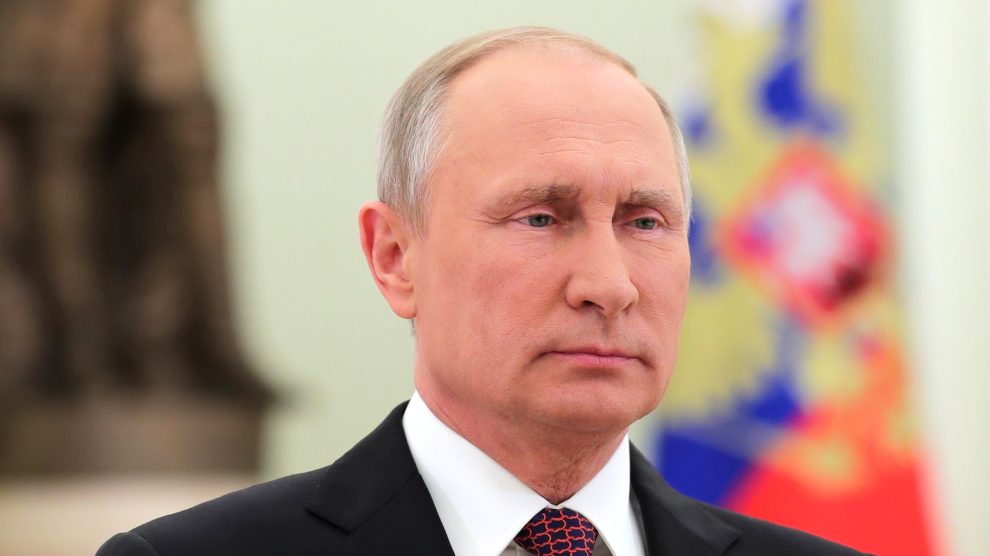Russian electoral disinfo ahoy. On Tuesday, Italy’s Chief of Defence Staff Admiral Giuseppe Cavo Dragone (who will soon lead NATO’s Military Committee) warned against the Kremlin’s escalating disinformation strategy as elections in the European Union (June) and the United States (November) come into view. The aim remains to influence the vote to advance Moscow’s aims across the geopolitical board. He said. But this time, President Vladimir Putin himself is actively joining the effort.
Hammering hope. “These very days, we are witnessing the intensification of a Russian disinformation strategy in which [Vladimir] Putin himself is at the forefront,” remarked Admiral Cavo Dragone at a Lower House conference (organised by the Italian Institute for International Affairs) on the two-year anniversary of Russia’s full-scale invasion of Ukraine. Moscow’s objective is to “disorientate our public opinion through the dissemination of a fallacious narrative.”
- There are three main cornerstones to this narration, he explained: “the image of a Russia eager for peace, the picture of a war that is now pointless and whose outcome in Moscow’s advantage is no longer in question, and the perception of a West that is now tired of supporting a costly and hopelessly successful conflict of friction.”
Reality check. All of it is obviously false, as the admiral explained. Russia was initially “banking on a blitzkrieg” and is instead “engaged in a long-lasting conflict of attrition, incurring heavy losses of men and means.” Moscow failed to achieve its primary objectives, and the economy’s support for the war effort “will not be sustainable for long in the light of ever-tightening sanctions and a financial commitment to national defence that has risen to around 6.2% of GDP, roughly equal to one-third of the entire public expenditure.”
Over to Moscow. Hours later, President Putin – who has recently appeared in an exclusive interview with former Fox News leading face Tucker Carlson – again proved Admiral Cavo Dragone right by remarking on Italy and Russia’s ties at an event in Moscow. He was conversing with Irene Cecchini, a young, Russia-admiring Italian woman studying at the Moscow State Institute for International Relations (MIGMO), which is closely linked to the Russian Foreign Ministry.
- Ms Cecchini had asked about immigration policies and integration into the Russian labour market. But the dictator instead engaged her with personal questions, including on her private life.
- “Italy has always been close to us. I remember when I came to Italy, how people welcomed me. In some places, I felt completely at ease,” he said.
Why is he doing that? Recent polling by the European Council on Foreign Relations suggests that although support for Ukraine remains very high, Europeans (interviews were conducted in 12 countries, including Italy) appear pessimistic about the outcome of the war. On average, just 10% believe that Kyiv will win, while twice as many expect a Russian victory. Italy lies on the more negative end of this spectrum, and most Italians (52%) would have their governments push Kyiv to accept a settlement.
- As European elections near, the Kremlin is doing all it can to fuel the war fatigue and disillusionment for Ukraine’s resistance efforts.
Meanwhile, Giorgia Meloni doubles down on support. The Italian Prime Minister has scheduled the first G-7 leader’s summit – which will take the form of a video conference – on February 24, the anniversary of the invasion. Ukrainian President Volodymyr Zelensky will also be in attendance. The PM’s office has indicated that the meeting is geared towards reaffirming the G-7 and Western support for Kyiv, including through a “tightening of the sanctions system” to “close the channels of financing from third states” to Moscow, Adnkronos reported.
- On Wednesday, EU officials agreed on a new package of sanctions that includes Chinese and Indian companies accused of supporting Russia’s war effort.
- Meanwhile, debates are ongoing on whether it’s possible to use Moscow’s frozen funds, and how. The obstacles are reportedly “of a legal and financial nature.”
- Rome and Kyiv could also close their bilateral defence deal on Saturday.





